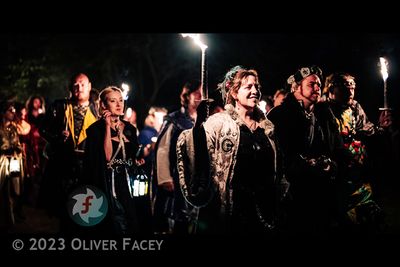Writ of consecration
Synod Judgement
Overview
A consecration performed with true liao creates a durable aura, an inspirational location that can have profound effects, both spiritual and political. For this reason, Imperial law limits when true liao can be lawfully used to perform a consecration to a paragon, exemplar or "other inspirational figure". The correct use of a Judgement issuing a writ of consecration can specify who the consecration should commemorate and where it should take place. Any consecration to an inspirational figure which does not conform with the terms of a writ issued by the Synod constitutes a grave breach of Imperial law.
The writ was created by the Imperial Senate during the Autumn Equinox 385YE. Their decision was informed by concerns about the potential to abuse true liao - specifically the risk of the resting place of controversial Sulemaine being transformed into an inspirational tomb consecrated to Hate. The writ ensures that a consecration with true liao cannot be performed without explicit endorsement from the Imperial Synod.
Judgement
- A writ of consecration must be raised by a virtue assembly
- If it is upheld with a greater majority then it will create an opportunity for one or more mandates
- Only a single writ of consecration from each virtue assembly each season will create an opportunity
- The opportunity will present one or more competing mandates, one of which can be passed in the general assembly to authorise the use of true liao
A writ of consecration must be raised and upheld by the relevant virtue assembly with a greater majority. If a citizen intends to use true liao to consecrate a location to Wisdom, then they must raise the judgement in the Assembly of Wisdom. To be legally binding, the judgement must clearly identify both the Inspirational location they plan to consecrate and the virtue of the consecration. A maximum of one writ of consecration can be enacted by each virtue assembly each summit.
If a valid writ of consecration is upheld by the greater majority of a virtue assembly then it will create an opportunity. Over the following season, the civil service will collate and presented information on what effects might come from consecrating the named location using a mandate in time for the Synod to make a final deliberation on the matter at the following summit. Where more than one option for a viable site is identified by the civll service, then these options will be presented in the wind of fortune. If more than one achieves a greater majority in a given virtue assembly, only the one with the greatest margin will lead to an opportunity.
The opportunity will present one or more mandates that any priest can raise at the coming summit to consecrate the location with true liao. All mandates resulting from a writ of consecration are considered to be competing with each other. Any mandate that consecrates a location in either Urizen or Varushka requires a greater majority in order to have an effect due to the mandates enacted by the Varushkan and Urizen National Assemblies.
A crypt is just a barn 'til it's full.
Marcher ProverbOutcome
- If the mandate is successful, then the named priest can use a dose of true liao to create an inspirational location
If the mandate is successful then the consecration has the explicit authorisation of the Imperial Synod and will be enacted as normal (provided the named priest provides the dose of true liao required). The writ does not create any legal obligations - but it does grant the named priest the legal entitlement to use true liao to consecrate the specified location to the named figure with the appropriate virtue. Any deviation from these terms would provide grounds for an investigation by the magistrates.
To create a Judgement of Writ of Consecration, by which the Imperial Synod may authorise the use of Imperial (true) liao to consecrate an inspirational memorial or tomb to a Paragon, exemplar, or other inspirational figure. A Writ of Consecration shall require approval by a greater majority of the relevant Virtue assembly, whereupon the Tribune of the Synod will raise the same judgement for approval by the lesser majority of the General Assembly. The use of Imperial liao to consecrate a tomb or other memorial to an individual, conducted without this approval, will constitute a grave breach of Imperial law.
Senate Motion Autumn Equinox 385YE, Proposed: Sermersuaq, Seconded: MiarenFurther Reading
Core Brief
Additional Information
